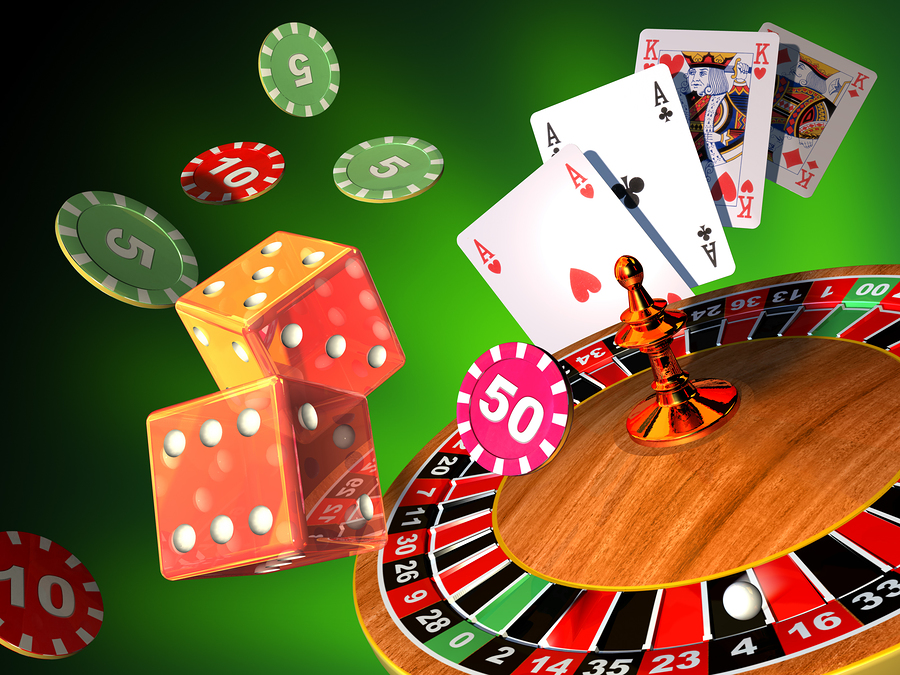
When we think of gambling games, the initial pictures that often cross our minds are those of rotating roulette wheels, card chips clinking on fabric tables, and cubes flying across a betting surface. While numerous view these activities as mere pastimes fueled by chance, a deeper exploration reveals a fascinating blend of strategy, skill, and social engagement that elevates them well beyond basic chance. Whether you are a seasoned player or a curious newcomer, grasping the subtleties of these games can significantly enhance your experience and appreciation.
Casino games have developed over centuries, with various cultures contributing to their rich backgrounds and different forms. From the intricate tactics of blackjack to the bluffing tactics in card games, players engage in a battle of intellect as much as a risk on odds. This dynamic interplay between luck and skill creates a exciting atmosphere that draws millions to gambling establishments worldwide. As we explore the realm of card activities, we will reveal the strategies that can shift the odds in your advantage and the community aspects that make these games a popular choice for entertainment and engagement.
A Strategy of Table Games
Casino games often combine a blend of skill and chance, which makes them fascinating for participants who enjoy a challenge. Each title has its own set of rules and strategies that can influence the results. For instance, in games like 21, participants are obliged to use strategies like card counting and grasping the odds to make informed decisions. BK8 This skill set can significantly improve the victory potential, differentiating experienced participants from novices who may rely solely on luck.
Conversely, titles such as the roulette may appear to be entirely based on luck, but tactical thinking can also come into the equation. Players can select between various wagering tactics, such as the Martingale system, where they increase the bets after losses. This approach can establish a more methodical approach to the game. Understanding the odds of specific bets can also help participants make better decisions on the table, showcasing that even in games of chance, strategy can enhance the experience.
Furthermore, poker is notable as a game that heavily emphasizes strategy. Unlike most casino games, the game of poker merges skill, psychology, and chance. Players must also concentrate on the hands they are dealt but also consider their rivals’ actions and wagering patterns. Mastering concepts like position, pot odds, and reading bluffs is essential for winning. This depth of tactics in the game of poker often leads to a more immersive encounter for participants, as the decisions and abilities significantly affect the match’s outcome.
Comprehending Likelihood and Odds
In the world of gambling matches, probability and odds hold a crucial role in determining a player’s possible outcomes. Every match has its own set of guidelines that define how the chance of winning or losing is measured. For example, in matches like blackjack, participants have a chance to influence their odds through strategy, whereas in matches like the wheel, the outcomes are purely governed by luck. Comprehending how these probabilities are measured can significantly affect how a player deals with the match.
Ratios are typically presented in two formats: fractional and numeric. Ratio odds represent the proportion of the sum won to the amount bet, whereas decimal odds show the overall payout for a successful wager, including the initial bet. For instance, if a match has odds of 5 to 1, this means that for every one unit staked, a gambler could win five units if they win. Learning how to read these ratios allows gamblers to assess their potential earnings and formulate more wise choices during gameplay.
Gamblers should also be aware of the house edge, which is the casino’s inherent advantage over the gamblers. Each game has a distinct house edge, and comprehending this idea is important for managing one’s expectations and bankroll. Games with a lower house edge, such as blackjack and chemin de fer, typically offer better ratios for players compared to games like slot machines and lottery. By understanding the relationship between probability, ratios, and the casino advantage, gamblers can enhance their gambling engagement and plan more efficiently.
The Aspect of Table Gaming
Table games at casinos are often seen as a hub of community engagement, bringing players together in a shared experience that goes far past the mere act of playing games. The atmosphere at a poker table can be electric, with players engaging not only with the game itself but also with one another. Joy, excitement, and, sometimes, friendly banter create connections that enhance the overall experience of the gaming experience. This communal aspect can turn a alone endeavor into a dynamic social event, making casino games particularly enticing.
One of the intriguing elements of gaming at tables is the way it cultivates camaraderie among participants. Whether it’s collaborating to defeat the dealer at a craps table or exchanging tales between hands in a poker game, the environment encourages communication. Participants often share tips or strategies, creating a sense of community that boosts the fun. This social dynamic can make new gamblers feel welcomed and less intimidated by the competitive nature of gaming. As the game progresses, friendships may form, leading to a sense of connection that keeps players coming back to the table.
Moreover, the social aspect of table gaming extends outside just the players. Dealers play a crucial role in facilitating interaction and maintaining the flow of the game. Their ability to engage gamblers with friendly conversation and their expertise in running the table can create an welcoming atmosphere. This relationship between players and dealers adds another layer of enjoyment, where players feel connected not only to each other but also to the staff. Such interactions are often what make the experience unforgettable, as players leave with stories to tell and connections made, reinforcing the notion that gaming at tables are truly about something greater than luck.
